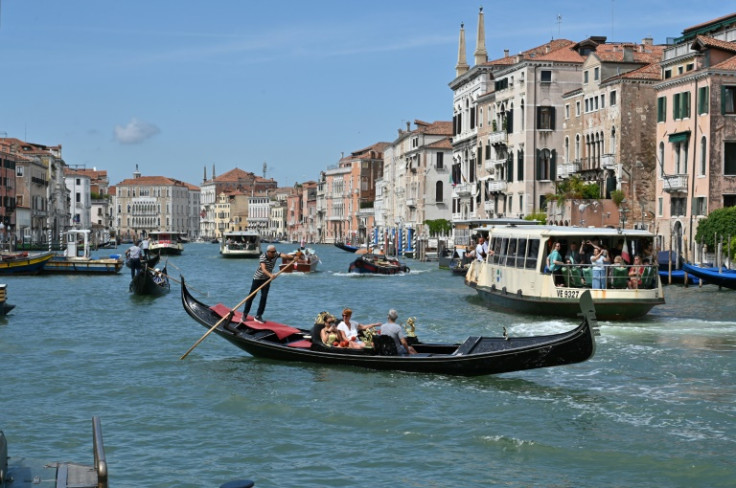Venice Will Become the First City in the World to Charge Day-Tripper Tourists
Starting in spring 2024, Venice will select 30 dates to apply the €5 entry fee, apart from the tourist tax, for day-trippers.

In an unprecedented move to combat the challenges posed by over-tourism, the picturesque city of Venice is set to make history by becoming the first city in the world to impose a €5 entry fee on day-tripper tourists.
Venice has long been a popular destination for travellers from around the globe, drawn by its stunning canals, historic architecture, and vibrant cultural scene. This bold initiative aims to strike a balance between preserving the city's unique cultural heritage and managing the overwhelming influx of tourists.
The city has been struggling for years to cope with the negative effects of mass tourism, including overcrowding, environmental degradation, and rising housing costs for residents.
The city gets an estimated 30 million visitors per year, with more than two-thirds of visitors coming only to stay for the day, overwhelming the 50,000 residents of the place.
just for the day.
Starting in spring 2024, Venice will select 30 dates to apply the entry fee, apart from the tourist tax, for day-trippers who are not staying overnight in the city. The fee will vary depending on the season, with higher charges during peak tourist periods.
The revenue generated from this initiative will be reinvested into the city to maintain its infrastructure, support local businesses, and fund cultural preservation projects. This new measure was emphasised to not be aimed at deterring tourists but rather at managing their numbers more effectively.
Visitors staying overnight in Venice at registered accommodations will be exempt from this fee. Additionally, residents of Venice, children under the age of six, and certain special categories, such as students and workers with valid permits, will also be exempt from the tourist tax.
To implement this system efficiently, Venice will utilise technology, including ticket kiosks, mobile apps, and online booking platforms. Authorities will work closely with local businesses and tour operators to ensure a seamless transition and provide information to tourists well in advance.
Davide Bertocchi, a professor specialising in tourism geography, provided his expert insight on the issue. He remarked that day trippers do not significantly contribute to Venice's economy, yet they exert substantial pressure on its infrastructure.
Bertocchi elaborated on this point by stating that these large groups typically adhere to a standardised three to four-hour itinerary, primarily centred around landmarks such as Saint Mark's Square and the Rialto Bridge.
This predictable pattern of movement results in unsustainable congestion within the city's narrow streets and ancient bridges, some of which are over a thousand years old. Furthermore, day-trippers often refrain from spending money on visiting churches and museums or supporting locally-owned businesses by shopping or dining.
In contrast, overnight visitors tend to allocate more of their budget to accommodations and meals. Moreover, they are already subject to Venice's tourist tax, a fee collected by their lodgings, which is utilised to fund the maintenance of Venice's tourism infrastructure and the preservation of its cultural heritage.
The move has received mixed reactions from residents and tourists alike. Some Venetians believe that the fee will help alleviate the burden of over-tourism, while others worry about the potential impact on the local economy. Tourists have expressed concerns about the added cost of visiting Venice, but many understand the necessity of the measure.
Venice's decision to charge day-tripper tourists is seen as a pioneering solution to address the global issue of over-tourism. Other cities facing similar challenges are closely watching the outcome of this initiative and considering similar measures to protect their cultural heritage and quality of life for residents.
As Venice charts a new course towards sustainable tourism, it sets an example for the world in its efforts to balance the allure of iconic destinations with the preservation of their unique charm. The world will be watching as the "Floating City" leads the way in managing the delicate relationship between tourism and cultural heritage.
© Copyright IBTimes 2024. All rights reserved.






